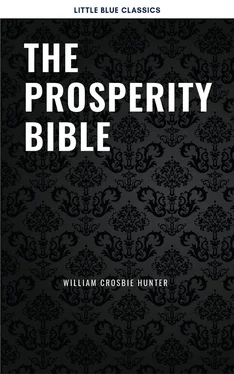We must have men and men and men, if we, with our allies, are to check the onrush of organized barbarism.
Have no illusions. We are dealing with a strong and magnificently equipped enemy, whose avowed aim is our complete destruction. The violation of Belgium, the attack on France and the defense against Russia, are only steps by the way. The German's real objective, as she always has told us, is England, and England's wealth, trade and worldwide possessions.
If you assume, for an instant, that the attack will be successful, England will not be reduced, as some people say, to the rank of a second rate power, but we shall cease to exist as a nation. We shall become an outlying province of Germany, to be administered with that severity German safety and interest require.
We are against such a fate. We enter into a new life in which all the facts of war that we had put behind or forgotten for the last hundred years, have returned to the front and test us as they tested our fathers. It will be a long and a hard road, beset with difficulties and discouragements, but we tread it together and we will tread it together to the end.
Our petty social divisions and barriers have been swept away at the outset of our mighty struggle. All the interests of our life of six weeks ago are dead. We have but one interest now, and that touches the naked heart of every man in this island and in the empire.
If we are to win the right for ourselves and for freedom to exist on earth, every man must offer himself for that service and that sacrifice.
From these examples it will be seen that the particular way in which the speakers appealed to their hearers was by coming close home to their interests, and by themselves showing emotion —two very important principles which you must keep constantly in mind.
To accomplish the former requires a deep knowledge of human motive in general and an understanding of the particular audience addressed. What are the motives that arouse men to action? Think of them earnestly, set them down on the tablets of your mind, study how to appeal to them worthily. Then, what motives would be likely to appeal to your hearers? What are their ideals and interests in life? A mistake in your estimate may cost you your case. To appeal to pride in appearance would make one set of men merely laugh—to try to arouse sympathy for the Jews in Palestine would be wasted effort among others. Study your audience, feel your way, and when you have once raised a spark, fan it into a flame by every honest resource you possess.
The larger your audience the more sure you are to find a universal basis of appeal. A small audience of bachelors will not grow excited over the importance of furniture insurance; most men can be roused to the defense of the freedom of the press.
Patent medicine advertisement usually begins by talking about your pains—they begin on your interests. If they first discussed the size and rating of their establishment, or the efficacy of their remedy, you would never read the "ad." If they can make you think you have nervous troubles you will even plead for a remedy—they will not have to try to sell it.
The patent medicine men are pleading—asking you to invest your money in their commodity—yet they do not appear to be doing so. They get over on your side of the fence, and arouse a desire for their nostrums by appealing to your own interests.
Recently a book-salesman entered an attorney's office in New York and inquired: "Do you want to buy a book?" Had the lawyer wanted a book he would probably have bought one without waiting for a book-salesman to call. The solicitor made the same mistake as the representative who made his approach with: "I want to sell you a sewing machine." They both talked only in terms of their own interests.
The successful pleader must convert his arguments into terms of his hearers' advantage. Mankind are still selfish, are interested in what will serve them. Expunge from your address your own personal concern and present your appeal in terms of the general good, and to do this you need not be insincere, for you had better not plead any cause that is not for the hearers' good. Notice how Senator Thurston in his plea for intervention in Cuba and Mr. Bryan in his "Cross of Gold" speech constituted themselves the apostles of humanity.
Exhortation is a highly impassioned form of appeal frequently used by the pulpit in efforts to arouse men to a sense of duty and induce them to decide their personal courses, and by counsel in seeking to influence a jury. The great preachers, like the great jury-lawyers, have always been masters of persuasion.
Notice the difference among these four exhortations, and analyze the motives appealed to:
Revenge! About! Seek! Burn! Fire! Kill! Slay! Let not a traitor live!—Shakespeare, Julius Cæsar .
Strike—till the last armed foe expires,
Strike—for your altars and your fires,
Strike—for the green graves of your sires,
God—and your native land!
—Fitz-Greene Halleck,
Marco Bozzaris .
Believe, gentlemen, if it were not for those children, he would not come here to-day to seek such remuneration; if it were not that, by your verdict, you may prevent those little innocent defrauded wretches from becoming wandering beggars, as well as orphans on the face of this earth. Oh, I know I need not ask this verdict from your mercy; I need not extort it from your compassion; I will receive it from your justice. I do conjure you, not as fathers, but as husbands:—not as husbands, but as citizens:—not as citizens, but as men:—not as men, but as Christians:—by all your obligations, public, private, moral, and religious; by the hearth profaned; by the home desolated; by the canons of the living God foully spurned;—save, oh: save your firesides from the contagion, your country from the crime, and perhaps thousands, yet unborn, from the shame, and sin, and sorrow of this example!
–Charles Phillips, Appeal to the jury in behalf of Guthrie.
So I appeal from the men in silken hose who danced to music made by slaves and called it freedom, from the men in bell-crown hats who led Hester Prynne to her shame and called it religion, to that Americanism which reaches forth its arms to smite wrong with reason and truth, secure in the power of both. I appeal from the patriarchs of New England to the poets of New England; from Endicott to Lowell; from Winthrop to Longfellow; from Norton to Holmes; and I appeal in the name and by the rights of that common citizenship—of that common origin, back of both the Puritan and the Cavalier, to which all of us owe our being. Let the dead past, consecrated by the blood of its martyrs, not by its savage hatreds, darkened alike by kingcraft and priestcraft—let the dead past bury its dead. Let the present and the future ring with the song of the singers. Blessed be the lessons they teach, the laws they make. Blessed be the eye to see, the light to reveal. Blessed be tolerance, sitting ever on the right hand of God to guide the way with loving word, as blessed be all that brings us nearer the goal of true religion, true republicanism, and true patriotism, distrust of watchwords and labels, shams and heroes, belief in our country and ourselves. It was not Cotton Mather, but John Greenleaf Whittier, who cried:
Dear God and Father of us all,
Forgive our faith in cruel lies,
Forgive the blindness that denies.
Cast down our idols—overturn
Our Bloody altars—make us see
Thyself in Thy humanity!
—Henry Watterson, Puritan and Cavalier.
Goethe, on being reproached for not having written war songs against the French, replied, "In my poetry I have never shammed. How could I have written songs of hate without hatred?" Neither is it possible to plead with full efficiency for a cause for which you do not feel deeply. Feeling is contagious as belief is contagious. The speaker who pleads with real feeling for his own convictions will instill his feelings into his listeners. Sincerity, force, enthusiasm, and above all, feeling—these are the qualities that move multitudes and make appeals irresistible. They are of far greater importance than technical principles of delivery, grace of gesture, or polished enunciation—important as all these elements must doubtless be considered. Base your appeal on reason, but do not end in the basement—let the building rise, full of deep emotion and noble persuasion.
Читать дальше












